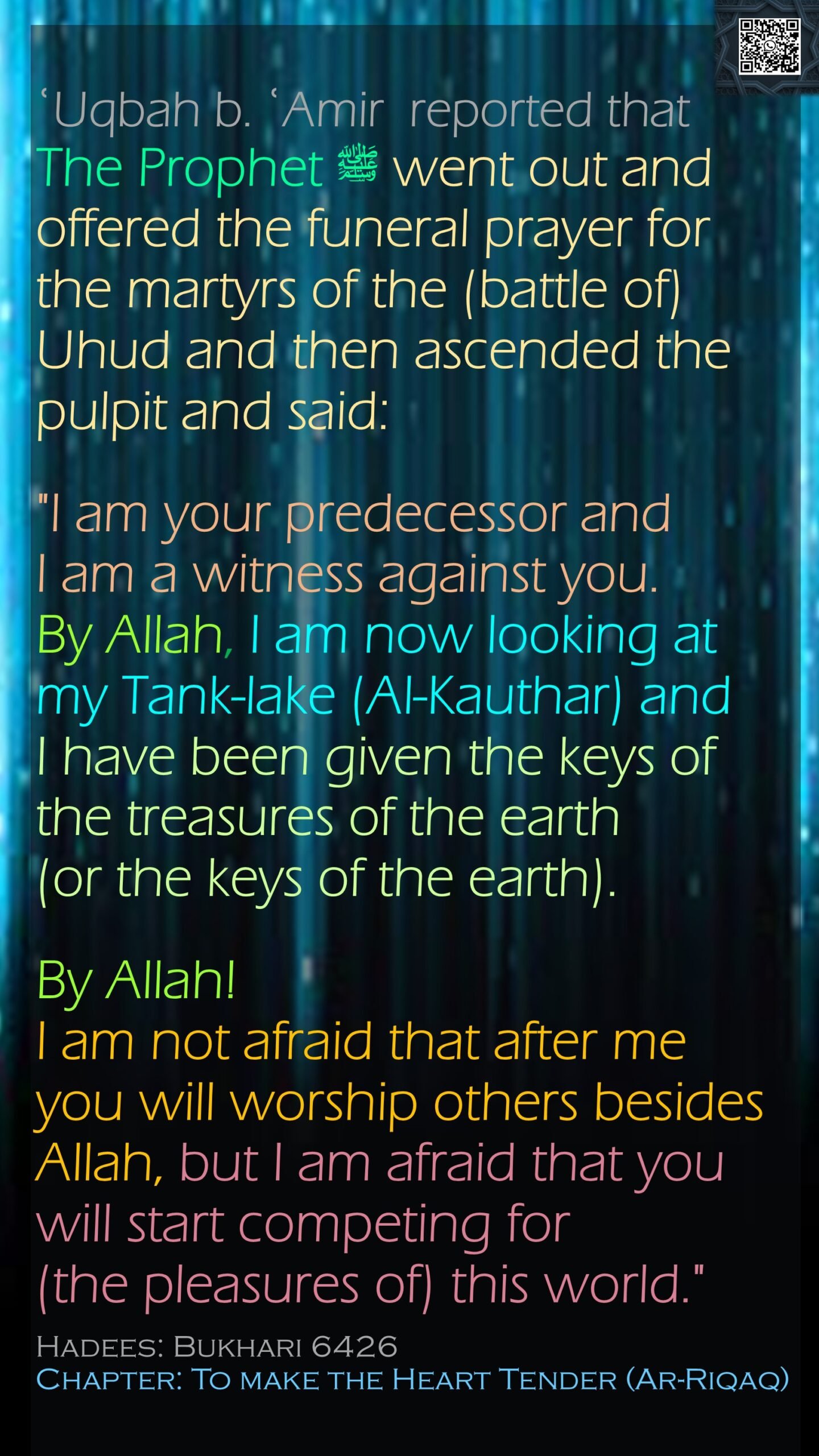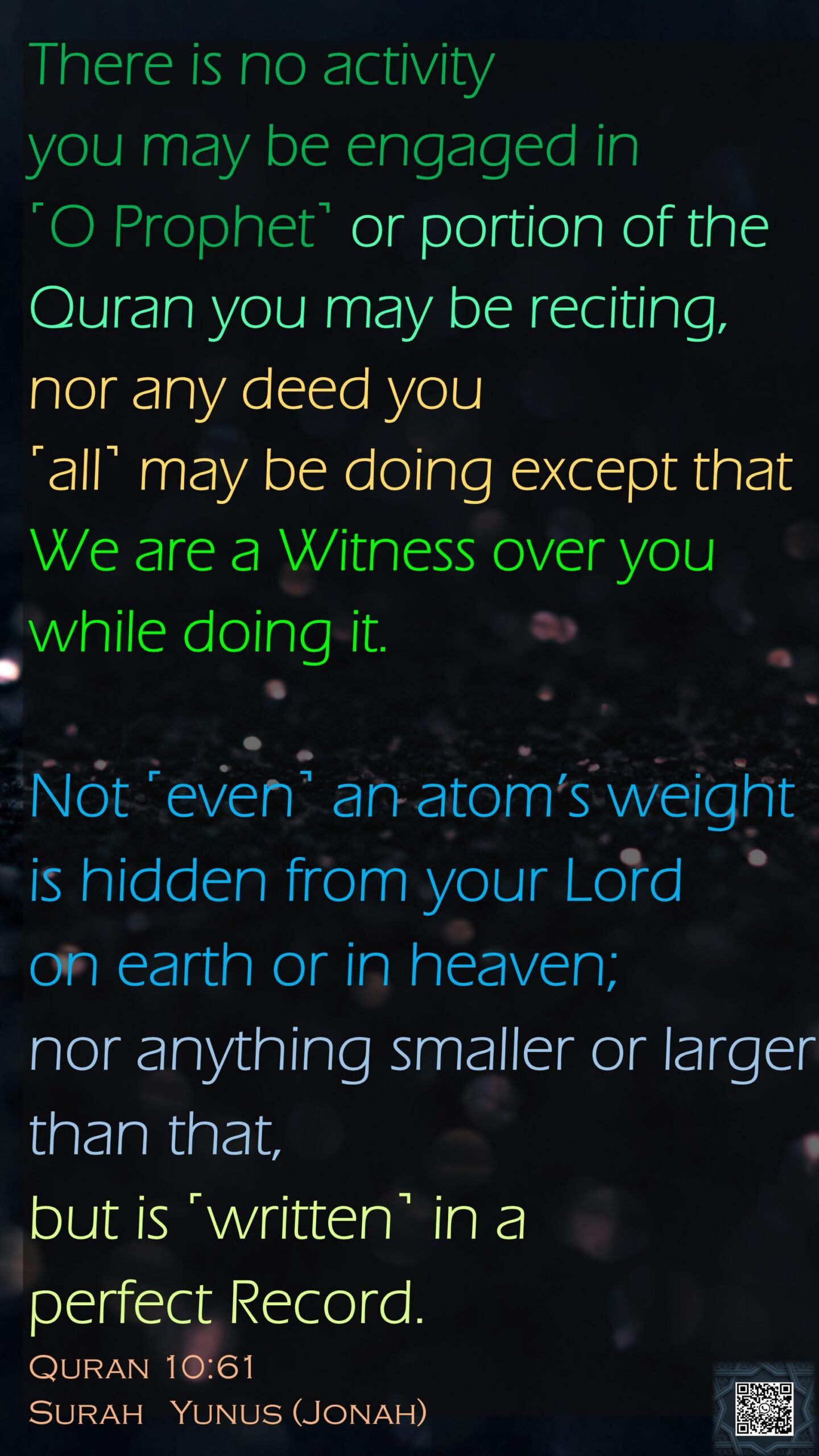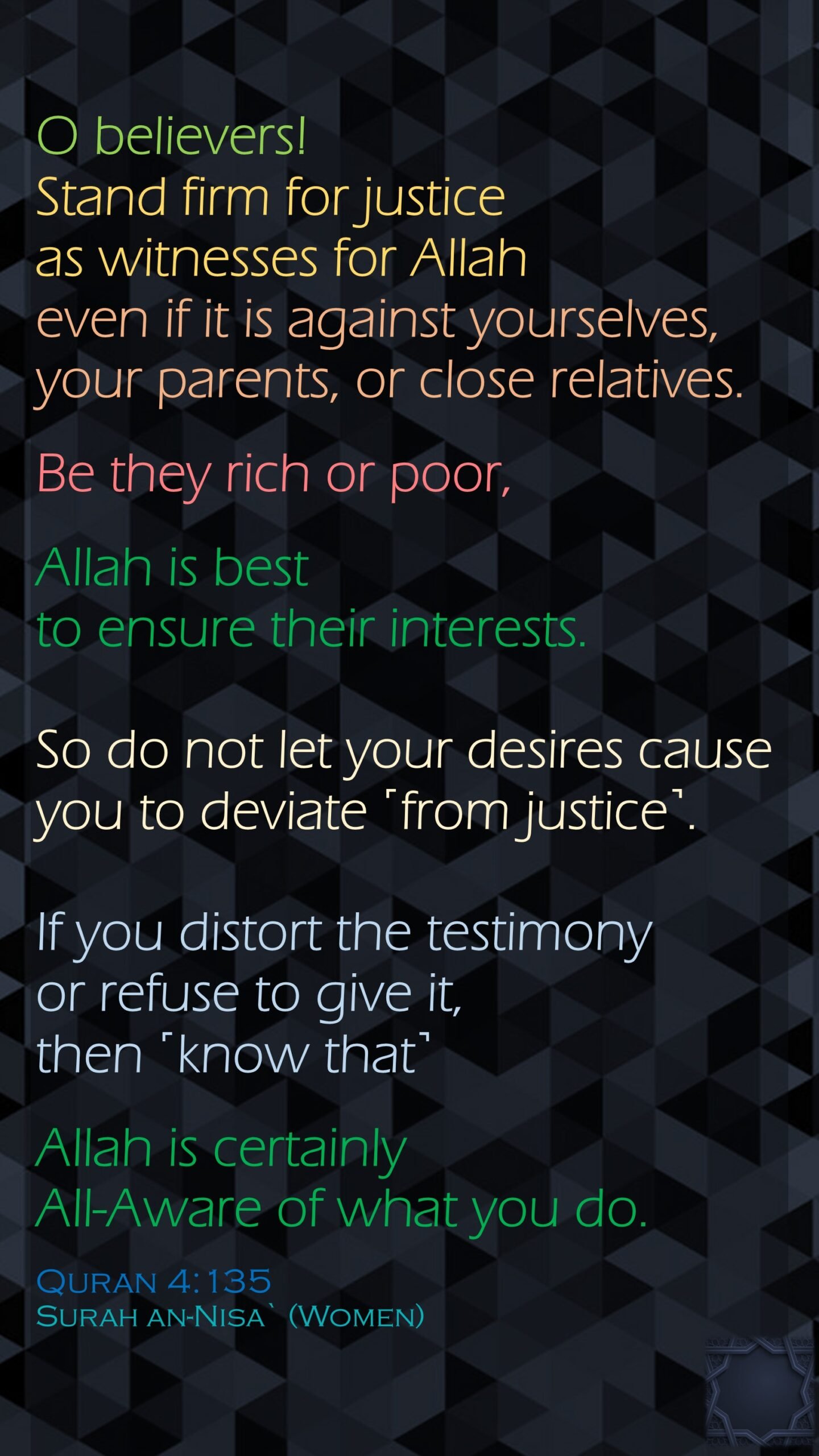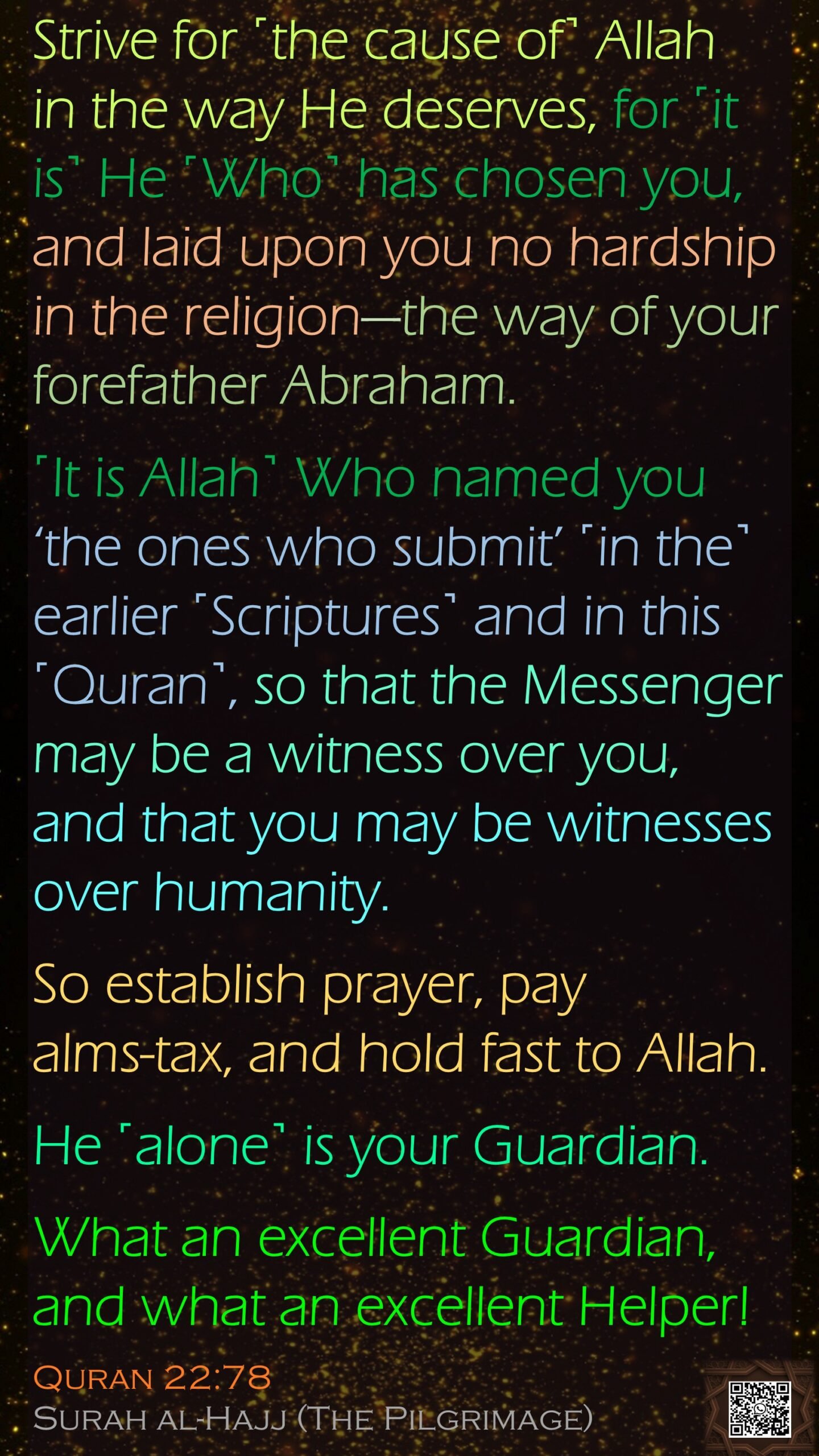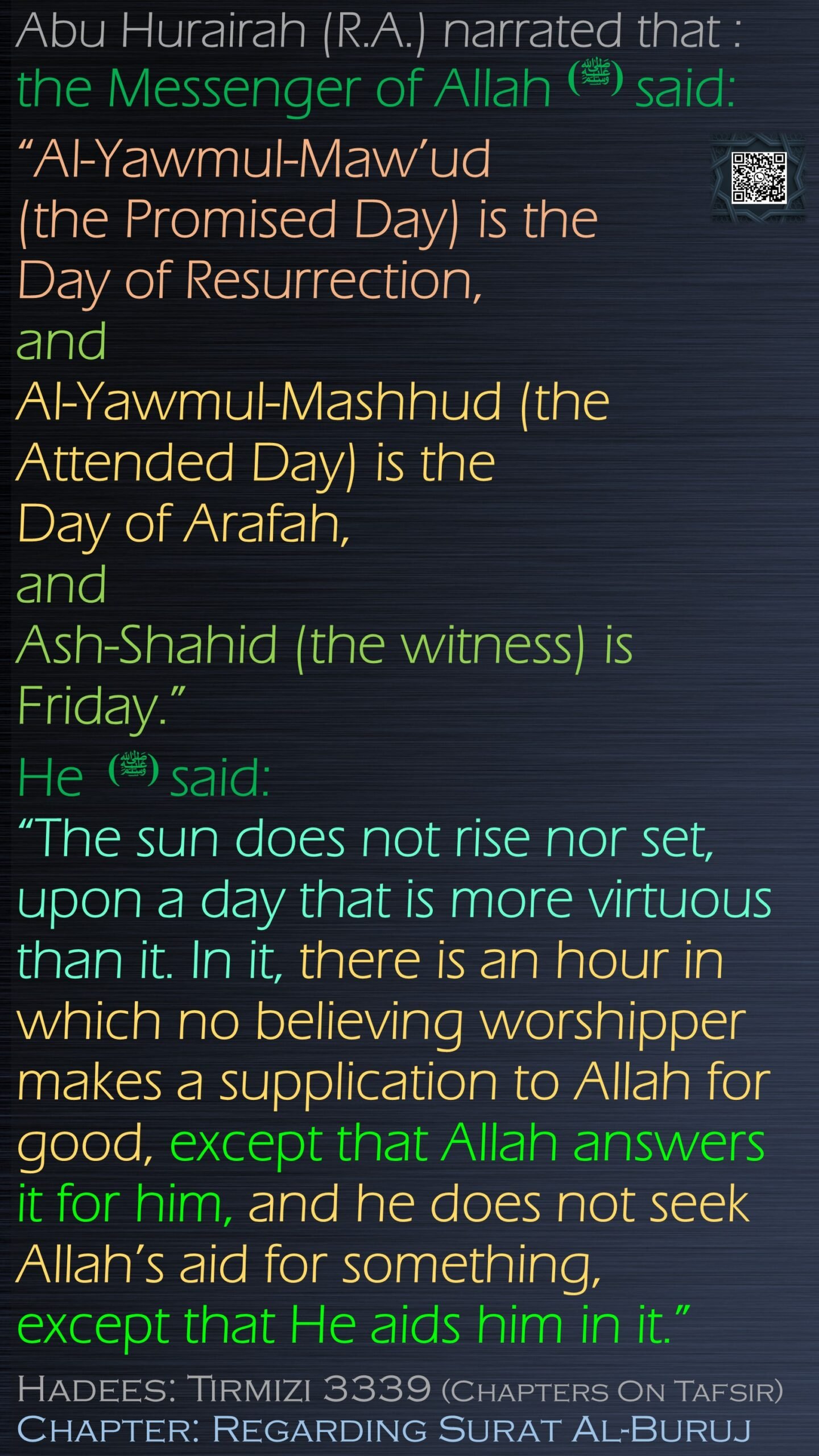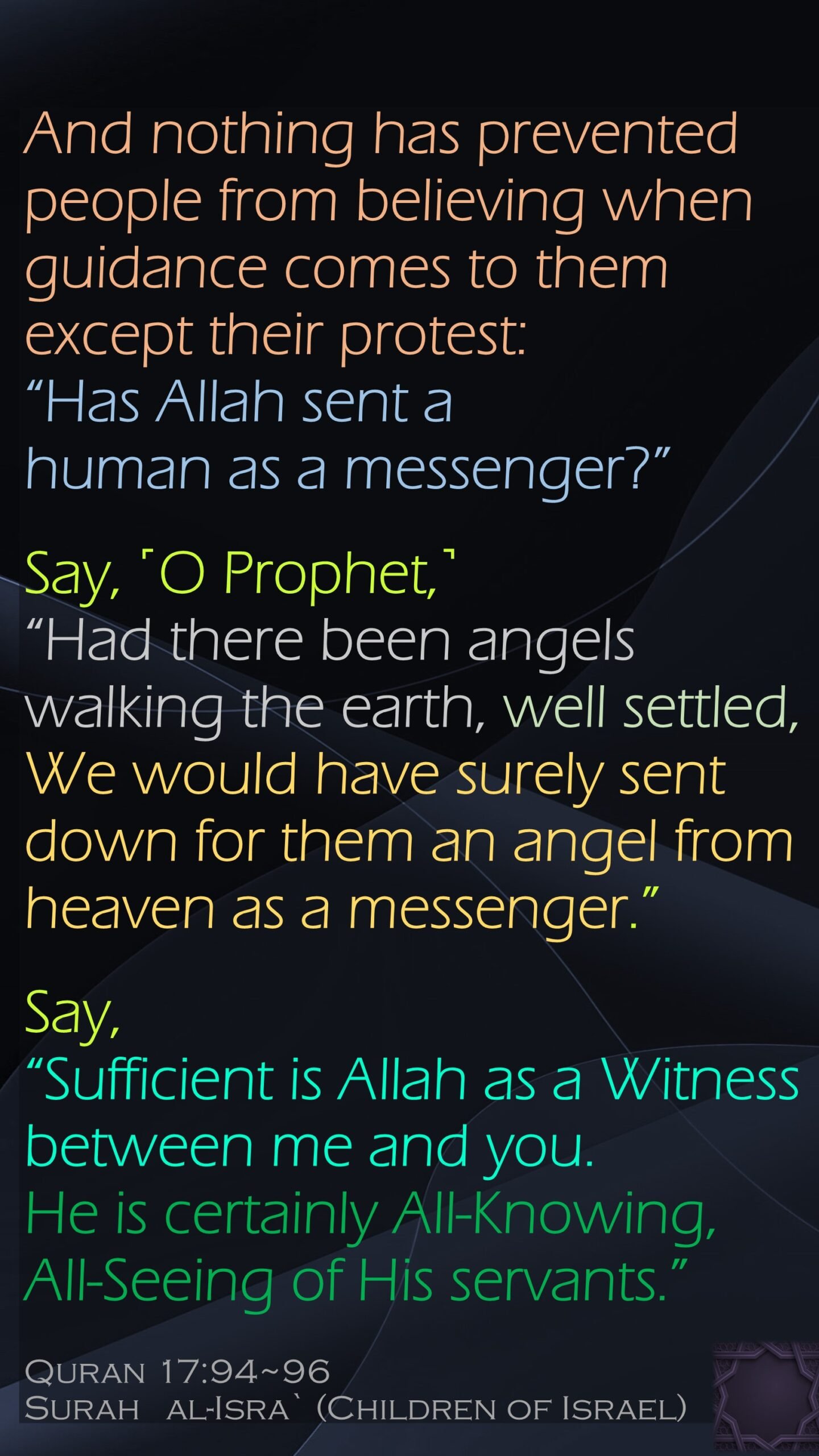16
Jun, 2025
Quran 22:78 (Ayah al-Hajj)
Islam, Quran 022, 078, Abraham, al-Hajj, Allah, alone, ayat, Chinese, chose, chosen, chosen ones, daily, deserve, excellent, french, Guardian, Hajj, hardship, helper, holy war, ibraheem, Ibrahim, inspirations, islam, islamic, jihad, language, Mandarin, messenger, Muhammad, Muslim, Muslimeen, no, Portugese, quran, religion, Russian, scripture, spanish, strive, Surah, the ones who submit, translation, witness
5
Jun, 2025
Hadees: Tirmizi 3339
Hadees, Islam 3339, aid, Allah, alone, angel, answer, Arafa, Arafat, Attend, Attended, Attended Day, chastiment, cover, daily, day, Death, descend, dishelved, dust, faces, far, fight, friday, hadees, hadith, hair, Heaven, hellfire, inspirations, Isa, islam, islamic, Jesus, jihad, Kingdom, Life, Mercy, Moses, Muhammad, Musa, Muslim, Near, nearest, No god but Allah, power, praise, promise, Promised, Promised Day, Prophet, rise, seek, servant, set, sorshipper, sun, supplication, surah Buruj, thins, Tirmizi, without partner, witness, worship
2
Feb, 2025
Quran 17:94~96
Islam, Quran al-isra, All-Knowing, All-Seeing, Allah, angel, ayat, believe, children of Bani Israel, daily, earth, guide, human, inspirations, islam, islamic, israelites, messenger, Muhammad, prevent, Prophet, protest, quran, Record, roam, settle, sufficient, Surah, witness
7
Jul, 2024
Quran 46:10~12
Islam, Quran 10, 11, 12, 46, act, al-Ahqaf, Allah, ancient, arabic, arrogant, ayat, beat, Bible, book, children, confirm, daily, fabrication, good, guidance, guide, inspirations, islam, islamic, Israel, Moses, Muhammad, quran, reject, sandhill, Surah, Taurah, windcurve, witness, wrong
7
Jul, 2024
Quran 46:7~9
Islam, Quran 46, 7, 9, al-Ahqaf, All-Forgiving, Allah, ayat, clear, daily, disbelieve, fabricate, indulge, inspirations, islam, islamic, Magic, messenger, Most Merciful, Muhammad, quran, recite, revealation, sandhill, save, slur, sufficient, Surah, warning, windcurve, witness, wrath
7
Dec, 2023

